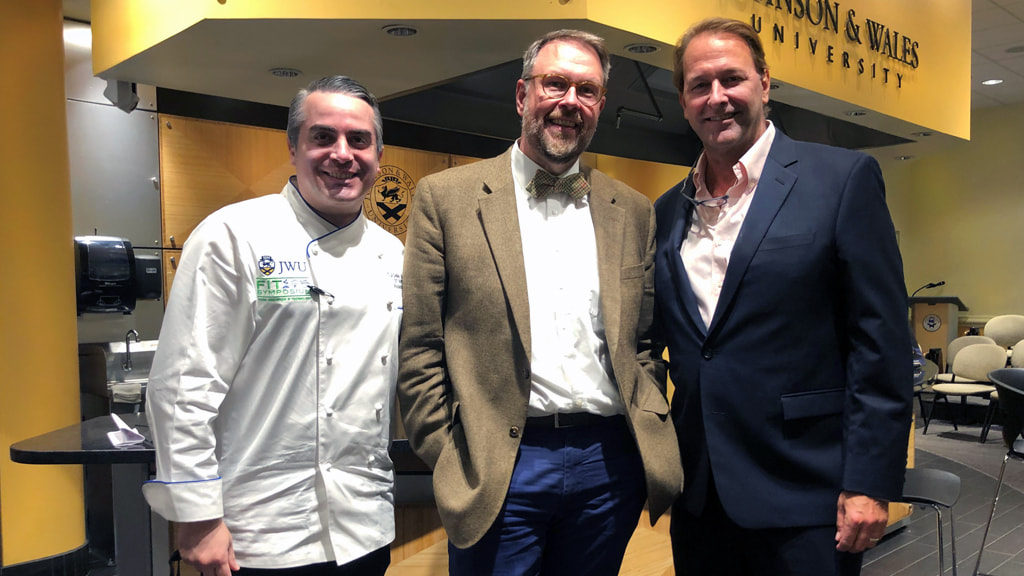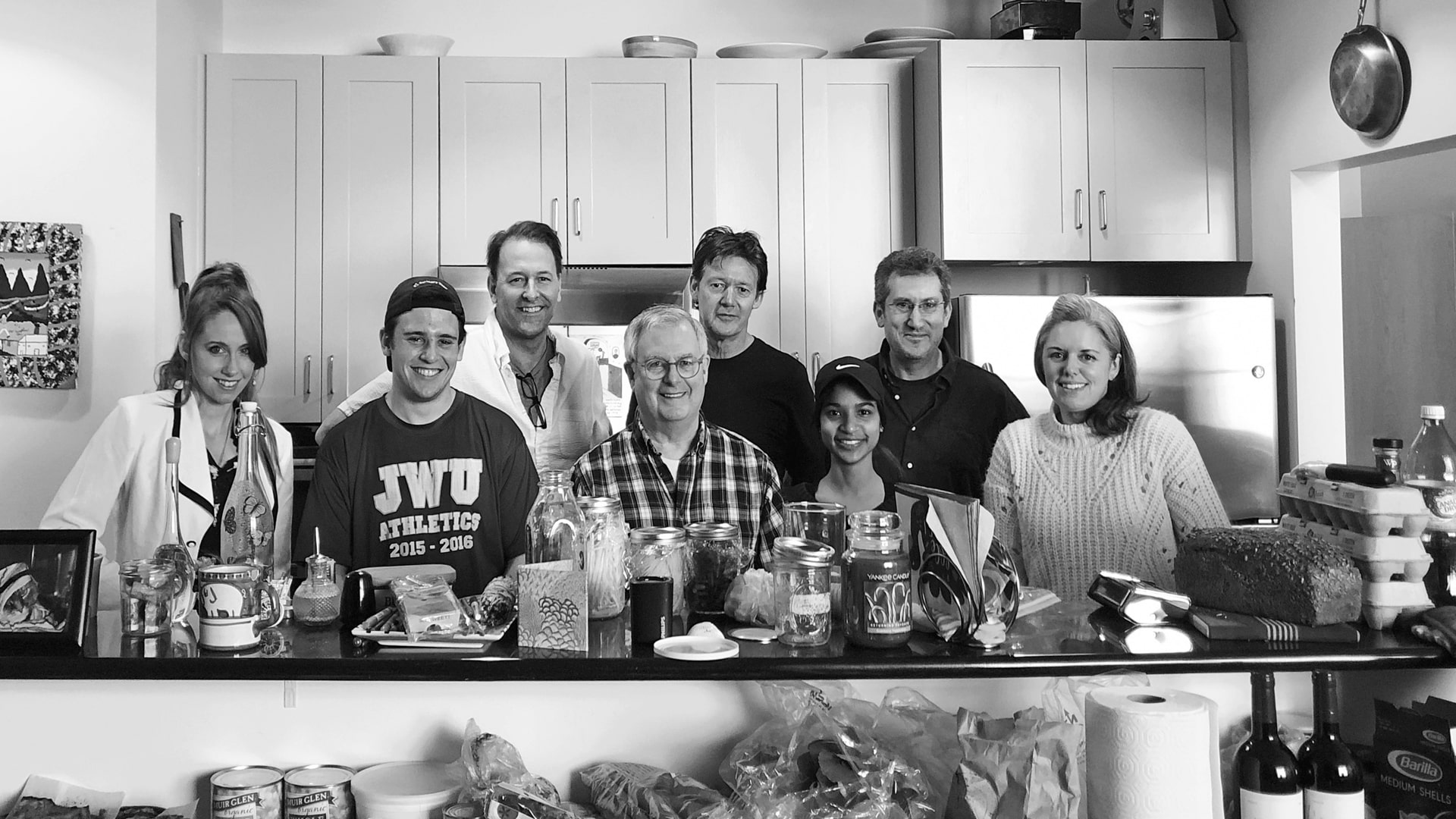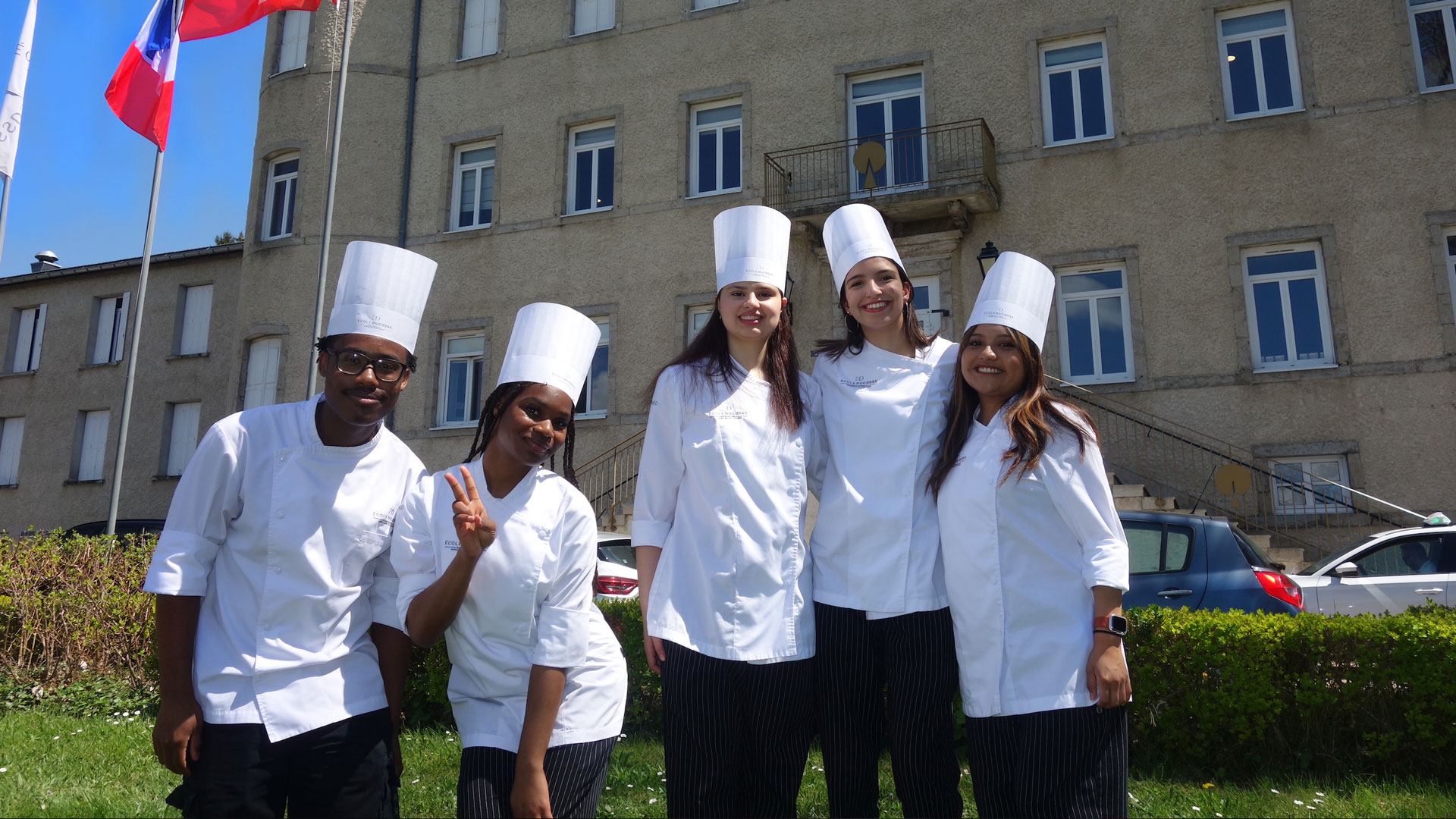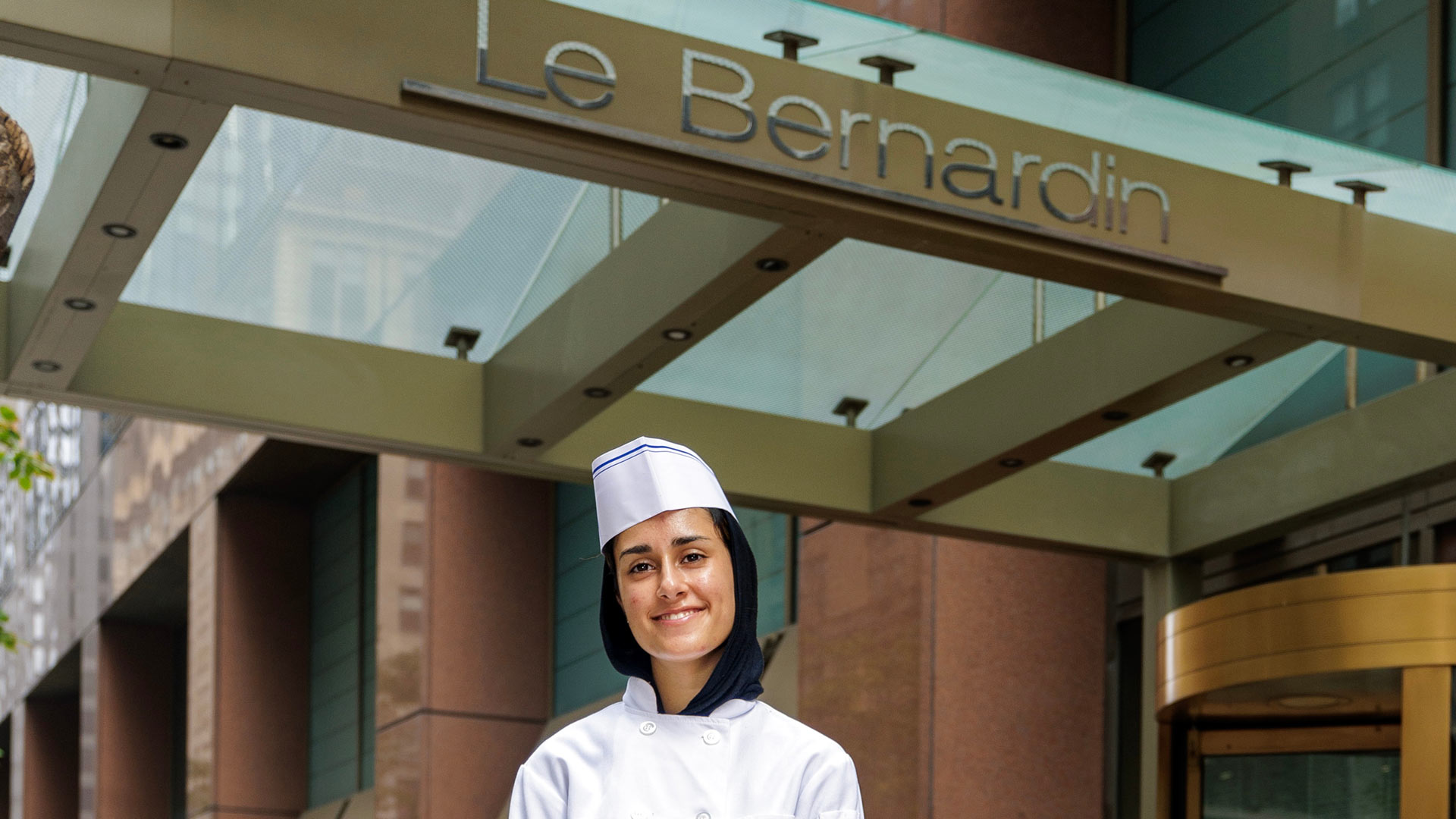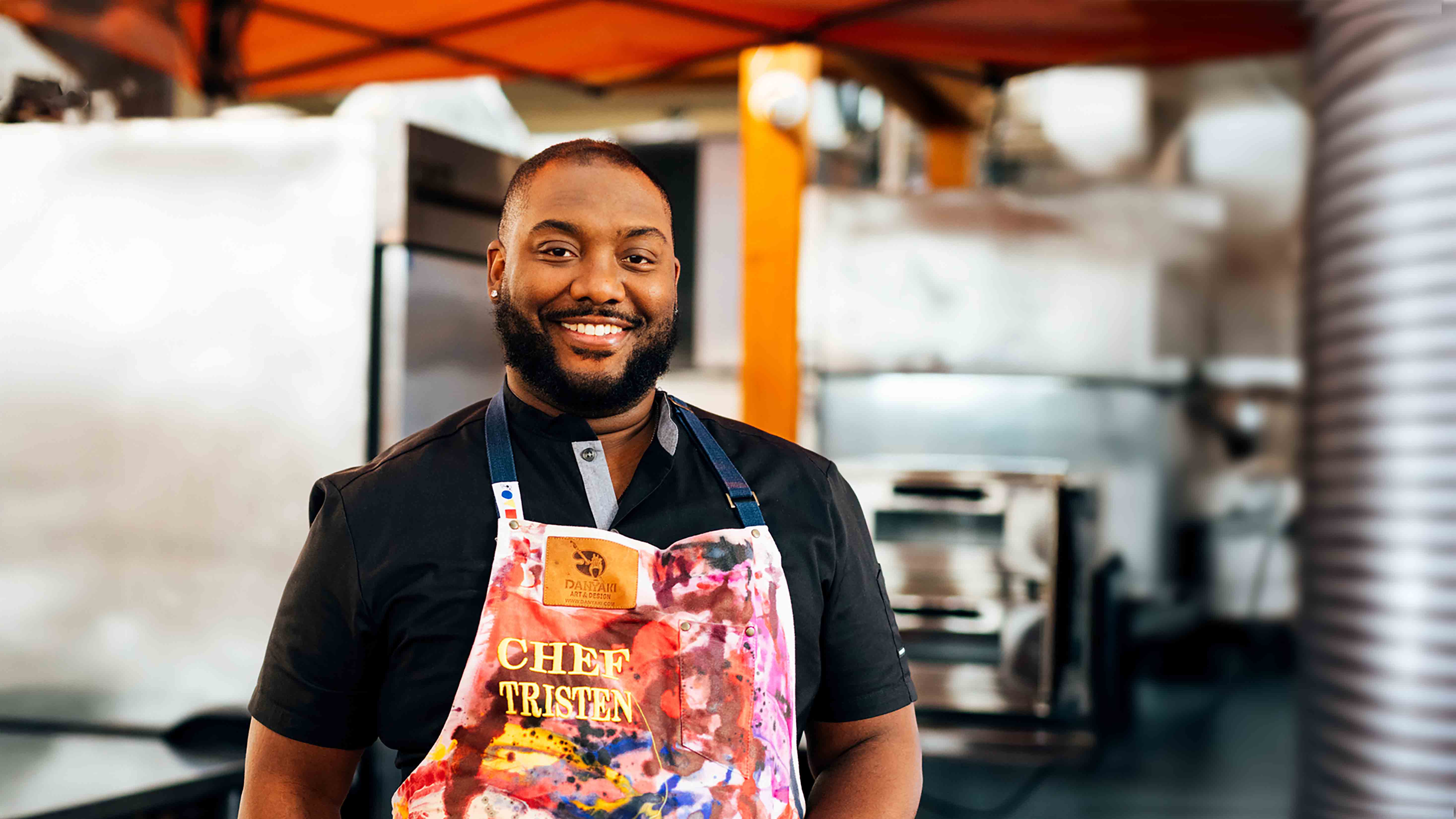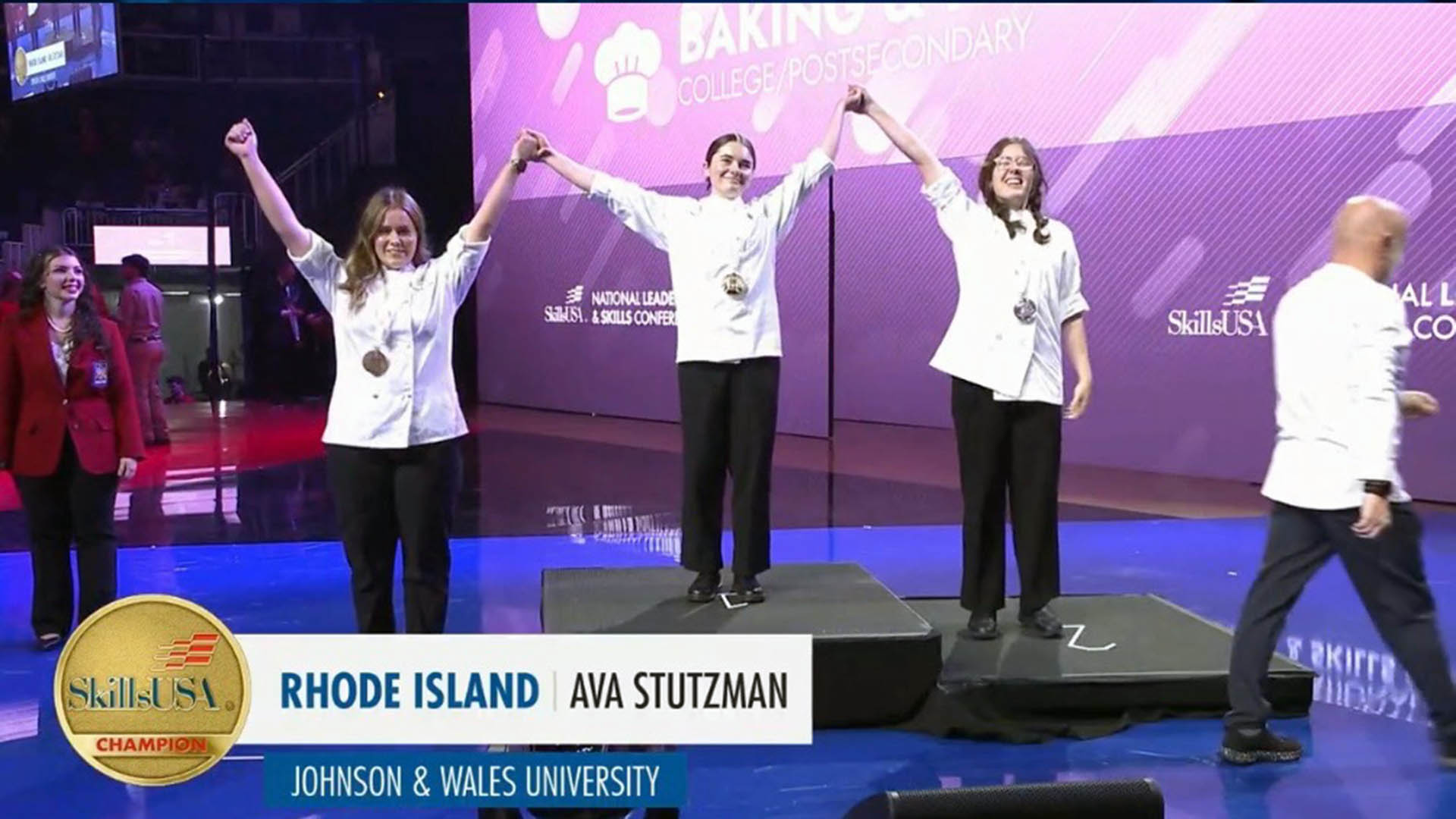What Drives a Chef? A Conversation with Author Michael Ruhlman
What drives a chef? Noted cookbook author Michael Ruhlman has spent much of his writing career wrestling with this question, but he knew he wasn’t going to find answers by only talking to great chefs. No, he was going to have to become a chef himself. And that decision changed his life in seismic ways. He recently visited JWU Providence — a visit that was supposed to happen last March, just as the pandemic hit — to share his insights with Dean Jason Evans, Ph.D., of the College of Food Innovation & Technology.
For Ruhlman, who documented his journey to becoming a chef in the 1997 bestseller, “The Making of a Chef,” the key to becoming a great chef comes down to passion, yes, but also the degree to which you can’t live without it. How far you are willing push yourself in the pursuit of excellence, in taking risks? “A lot of chefs talk about passion: ‘Give me a chef with passion over a chef with greater skill, but no passion, every time,’” Ruhlman explained to Dean Evans. “There’s nothing wrong with that. And passion does account for something. Passion is going to be the reason why you do this very difficult work. But in another way, I think that ‘follow your passion’ is a kind of fallacy. What you need to do at first is following what you’re good at. And that’s what I did.”
“‘Follow your passion’ is a kind of fallacy. What you need to do at first is follow what you’re good at.”
At first, Ruhlman engaged with his apprenticeship thinking of himself, first and foremost, as a writer. But a pivotal moment came when his first set of practical exams — during which each student needs to run through a set of tasks, like clarifying a consommé, making a hollandaise sauce, etc., under very strict time constraints — coincided with a blizzard. With his car buried under a mound of snow, and 25 miles to drive to get to campus, he felt he had no choice but to call his instructor to say he wouldn’t be able to make it. The chef cut off Ruhlman’s explanation: “One of the things we’re trying to teach kids here is not just how to make a hollandaise sauce or clarify a consommé. It’s that, when you’re a chef, you get there.” Ruhlman countered: “I would get there if I could, but I can’t.” The chef was not swayed: “That’s fine, Michael, you have your work. We have ours. We’re chefs. We get there like that.”
So Ruhlman got there. Recounting it now, he laughs: “I drove 25 miles through the snow to make a béchamel sauce. And that decision changed my life.” Not only did he crush the test, but he had a newfound determination to prove himself — not as a writer first and a cook second, but as a chef. And everything that followed, from working with Chef Thomas Keller and Susie Heller on “The French Laundry Cookbook” (1999) to subsequent book-length forays into charcuterie, braising and egg cookery (among others), has been in the pursuit of empowering home cooks through rigorously-tested recipes. (His most recent book, “From Scratch: 10 Meals, 175 Recipes, and Dozens of Techniques You Will Use Over and Over,” benefited from the food prep and styling assistance of two JWU seniors, Owen Macca '19 and Mariamelia Valdez Heredia '19. Read about their contributions.)
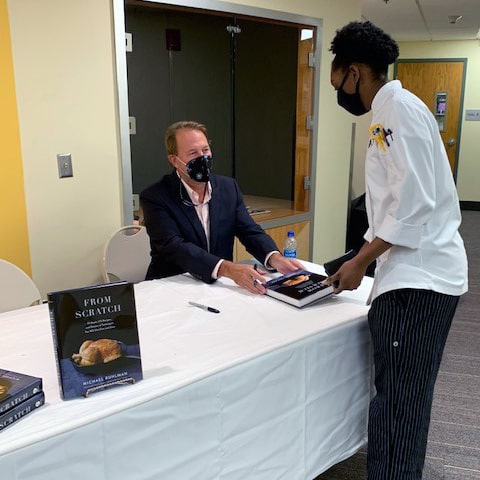 Having worked closely with celebrated chefs like Keller, Eric Ripert and Jean-Georges Vongerichten, Ruhlman has a reputation as a “chef whisperer”; Evans asks what core qualities set them apart. “No wasted movement in their kitchens,” Ruhlman explained. “They are all very detail-oriented.”
Having worked closely with celebrated chefs like Keller, Eric Ripert and Jean-Georges Vongerichten, Ruhlman has a reputation as a “chef whisperer”; Evans asks what core qualities set them apart. “No wasted movement in their kitchens,” Ruhlman explained. “They are all very detail-oriented.”
When they were working on the French Laundry book, Keller explained to Ruhlman that his first job in a restaurant was working for his mom as a dishwasher, which is where he learned the importance of scrupulous cleanliness. (She made him start with the bathrooms.) Ruhlman recalled, “He got really thoughtful for a while and said, ‘You know, that’s kind of funny. Everything I do is kind of based on cleaning the bathroom.’ And he mentioned he was serious. It had to shine. And that was about service. He was observant enough to look at his work as a dishwasher and glean the whole business philosophy of it.” Dean Evans added, “When you get asked that question this morning, you used a phrase that I was very impressed with. You called them elegant movers. That as you’re watching these people work, there is a purpose to every move they make and they’re thinking 10 steps ahead.”
It can take years to hone that kind of efficient elegance in the kitchen. But both Evans and Ruhlman agreed that building expertise as a chef depends on the integration of many factors, from foundational techniques to rhetoric, composition and critical thinking. Noted Dean Evans, “The type of education that you get here, in our intensive lab-based curriculum — you learn skills that are so important to every part of your lives, like teamwork and communication and problem-solving and creativity. There’s really not a lot of college curricular areas that do all of that at the same time.”
“Read everything you can get your hands on. Read about food, read about cooking, but read.”
Ruhlman picked up the thread: “I love the work of cooking too, and I love being in the kitchen. But you are going to have to communicate with your colleagues. You are going to have to know what you’re talking about. … You get articulate by talking thoughtfully by reading, especially. Read everything you can get your hands on. Read about food, read about cooking, but read.”
It’s also important to remember that faculty members are resources who are available to share their own experiences, as well as to help reinforce or sound out your ideas as you develop. Access to their knowledge and expertise is a crucial element of a JWU education. “You’ve got really great instructors here,” said Ruhlman. “Talk to them, ask some questions. They are a wellspring of information.”
As the questions wound down, one student asked Ruhlman how you know when you’ve chosen the right path. “Your body does it for you. Your body knows. Listen to that little tiny white light in the base of your soul.”
TOP: RUHLMAN AT JWU PROVIDENCE’S HAC AMPHITHEATRE. TOP RIGHT: CHATTING WITH A STUDENT DURING THE BOOK SIGNING. BELOW: RUHLMAN, RIGHT, WITH ASSISTANT DEAN TJ DELLE DONNE (LEFT) AND DEAN EVANS (CENTER). BOTTOM: THE “FROM SCRATCH” KITCHEN TEAM, L-R: PHOTO ASSISTANT KRISTEN WALTHER, OWEN MACCA '19, MICHAEL RUHLMAN, BRUCE TILLINGHAST, QUENTIN BACON, MARIAMELIA VALDEZ HEREDIA '19, MICHAEL SAND, AND DEB WOOD. PHOTO COURTESY OF ABRAMS PUBLISHERS.
